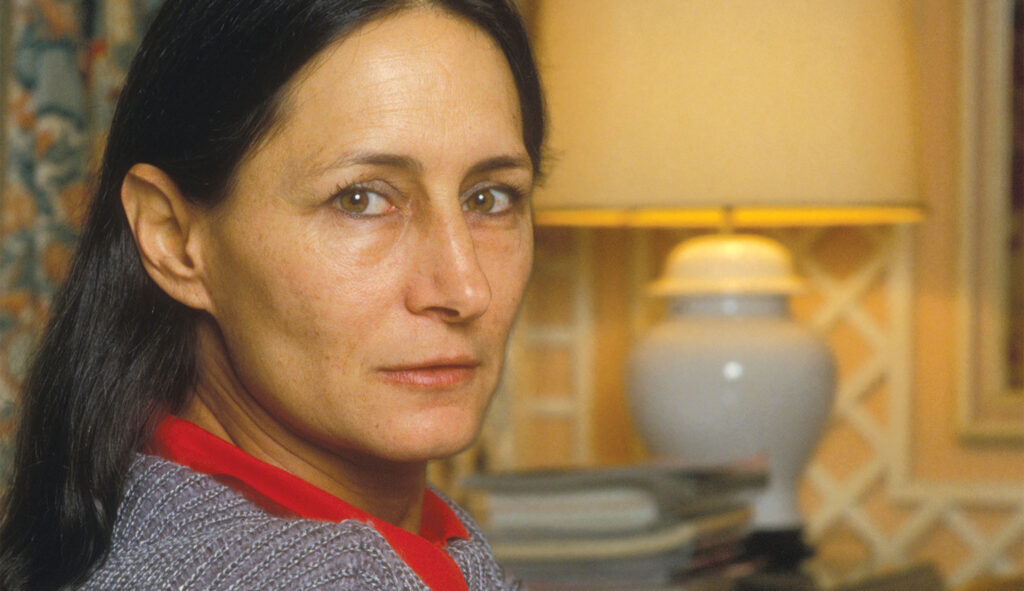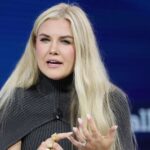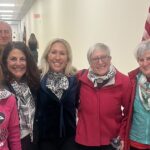
Only a select few children of major political figures, such as John Quincy Adams or Indira Gandhi, ever reach the same plateaus that were scaled by their fathers. Others, such as Jenna Bush and Meghan McCain, occasionally distinguish themselves in other fields. And still others yet are worthy of coverage for all the wrong reasons. (Exhibit A in this category is Hunter Biden, whose federal gun law trial is now underway.) Yael Dayan, who died on May 18 in Tel Aviv at 85, was decidedly not in this latter group. Her literary and political accomplishments allowed her to stand on her own as a significant figure in modern Israeli life, irrespective of the fact that her father, the military hero Moshe Dayan, was one of the most famous figures in all of Israeli history. Though, like any child of a noteworthy figure, the famous parent was never entirely out of the picture.
Yael Dayan was born in the small agricultural commune of Nahalal on Feb. 12, 1939. Although she was born into Israeli political royalty, she did not immediately follow her illustrious forefathers into politics. Her father, Moshe Dayan, was Israel’s defense minister during the 1967 Six-Day War and chief of staff of the country’s armed forces during the 1956 Sinai War. Her grandfather, Shmuel Dayan, was one of the founding members of the Knesset, Israel’s parliament. And her uncle, Ezer Weizman, the seventh president of Israel, was the nephew of Chaim Weizmann, the first president of Israel.

Though Yael Dayan’s initial interests were more literary than political, her first books were colored by the uniquely elite surroundings in which she was raised. Her first novel, New Face in the Mirror, published to great acclaim in 1959 when she was only 20 years old, centered on a young woman’s experience growing up in a military family. Her second book, Envy the Frightened, published one year later, tackled similar themes.
Her most important book, however, is the one in which she dealt with her father directly — My Father, His Daughter (1985). Moshe Dayan was one of the few figures of the early years of Israel whose fame extended beyond the Mediterranean. For a few years following the Six-Day War, his eye-patched visage was so iconic that when it was seen on a poster in a Mad Men character’s bedroom, it didn’t seem out of place. But, like many great men who accomplished legendary feats on the battlefield and in the public sphere, their private lives were not always exemplary. Yael Dayan addressed these aspects of her father’s persona with surprising candor, allowing his admirers (as well as his detractors) to gain a more rounded, clear-sighted picture of her complex father.
CLICK HERE TO READ MORE FROM THE WASHINGTON EXAMINER
After Moshe Dayan’s death, Yael Dayan decided to go into politics. Joining Israel’s Labor Party (and later as a member of the One Israel Party), she served three terms in the Knesset between 1993 and 2003. During her time in national government, she spearheaded landmark legislation that definitively outlawed sexual harassment in Israel — an accomplishment she said was the career achievement of hers that made her most proud. A supporter of the peace process during the early 1990s, Yael Dayan was liberal socially as well. She was an outspoken advocate of gay and lesbian rights and a critic of the rabbinate’s monopoly on Israeli marriage, divorce, and personal status laws. Following her Knesset terms, Yael Dayan remained active in politics at the local level, serving on the Tel Aviv City Council for 10 years (a period that included a stint as the city’s deputy mayor).
These are fraught times for Israel. Since Oct. 7, 2023, the 76-year-old state has been grappling with its greatest existential challenge since the 1973 Yom Kippur War. At the same time, it has also had to face external political pressures that have been nearly unprecedented in modern political history. Even its staunchest ally, the United States, has wavered in its support. For many in Israel, the struggle against Hamas today is no different than America’s fight against Nazism 80 years ago — a confrontation with pure evil in which the good must prevail at any and all costs. But not everyone, of course, sees it this way, as evidenced by the campus protests that engulfed American universities in May. As casualties on both sides of the war continue to mount, and as the morality of the war continues to be called into question, Israel, and the global political community at large, could now more than ever use a strong, sagacious moral voice as that which was possessed by Yael Dayan.
Daniel Ross Goodman is a Washington Examiner contributing writer and a postdoctoral fellow at Harvard Divinity School. His latest book, Soloveitchik’s Children: Irving Greenberg, David Hartman, Jonathan Sacks, and the Future of Jewish Theology in America, was published last summer by the University of Alabama Press.
Scroll down to leave a comment:
[Fancy_Facebook_Comments]







